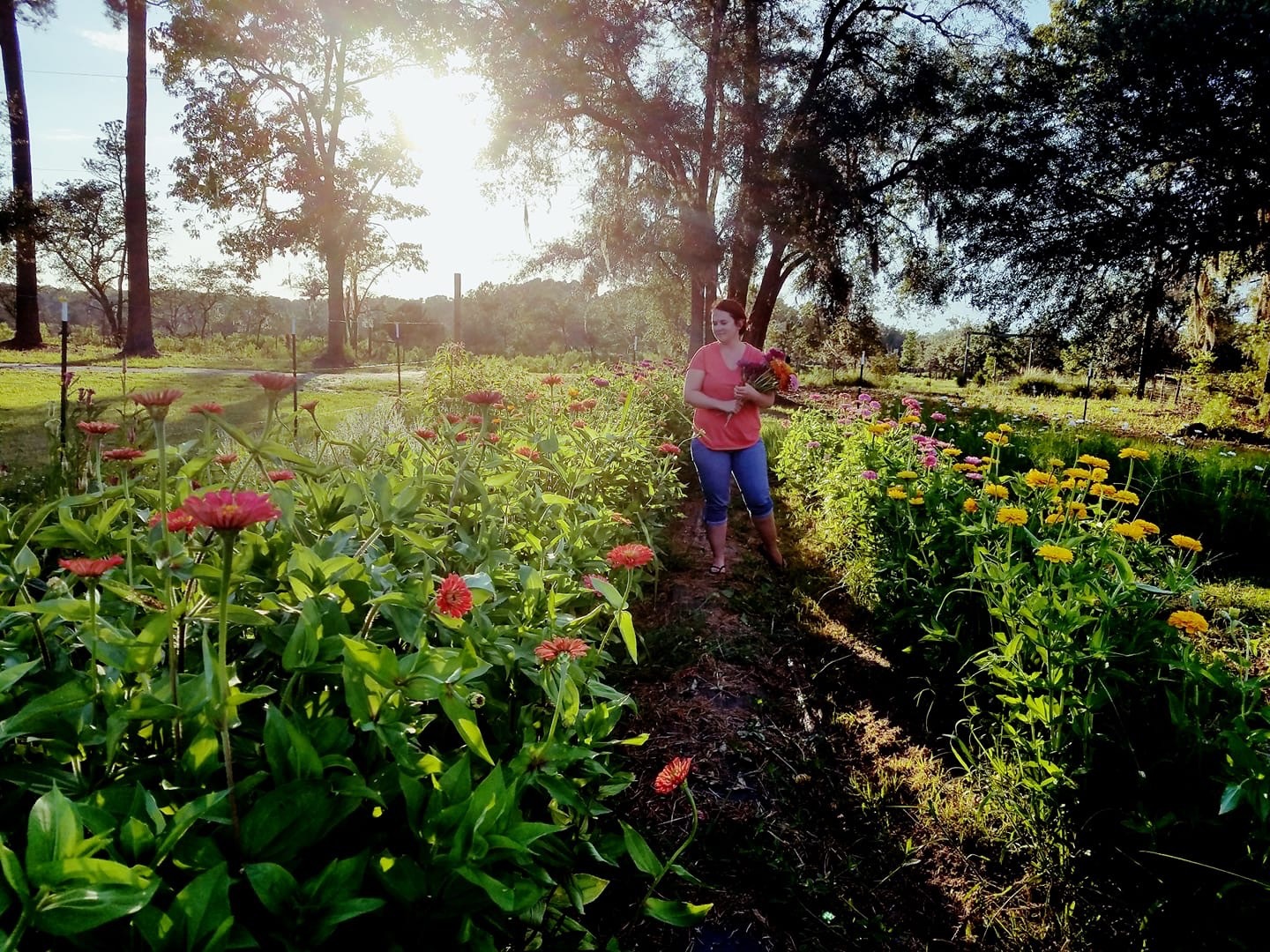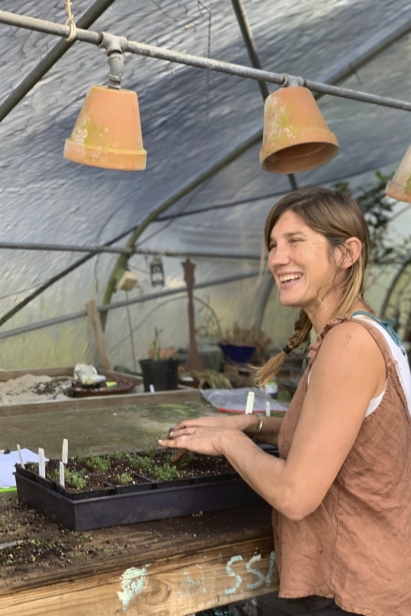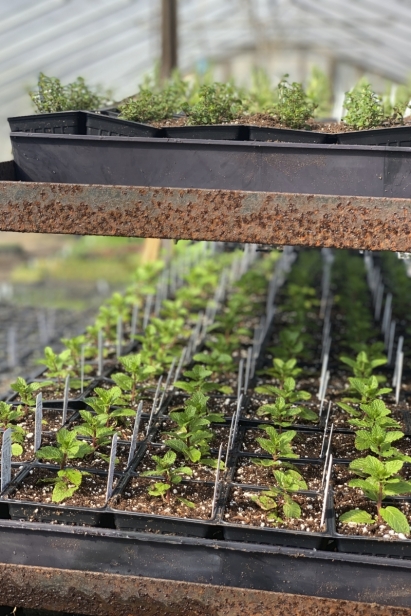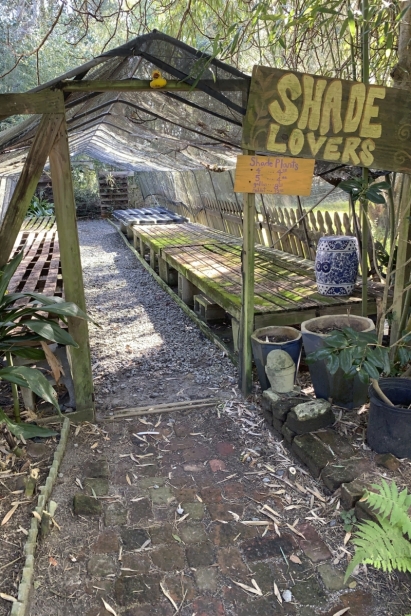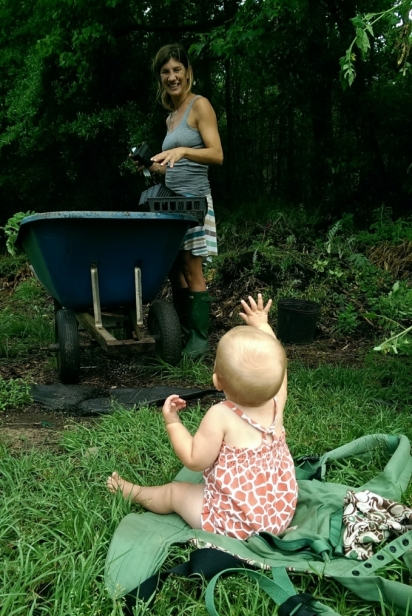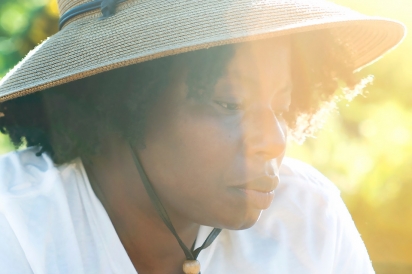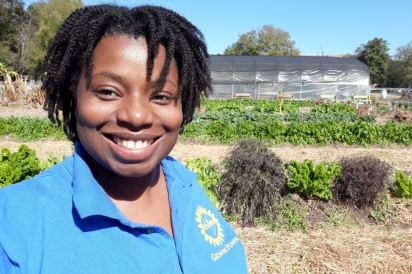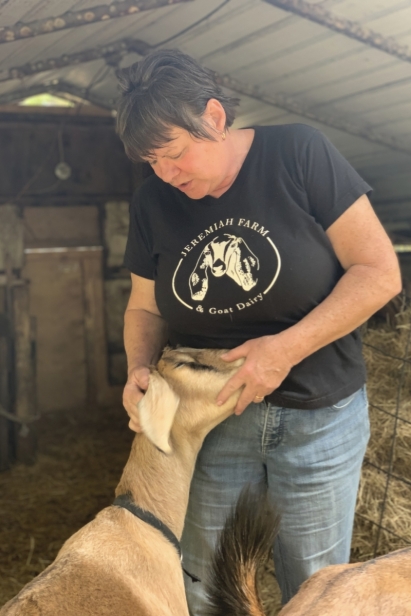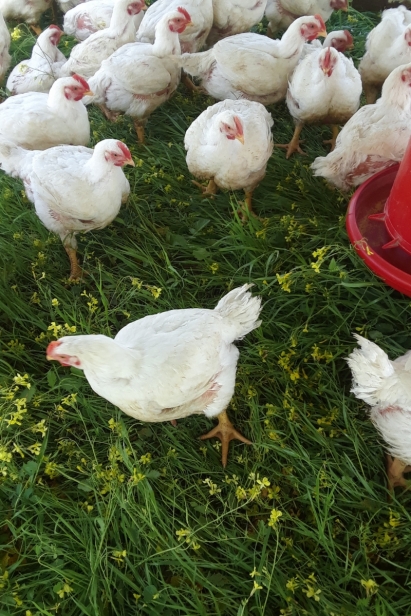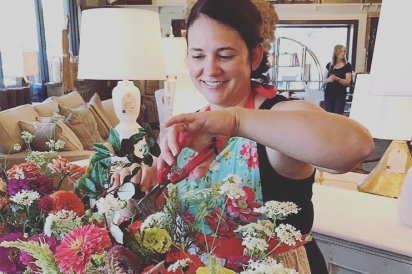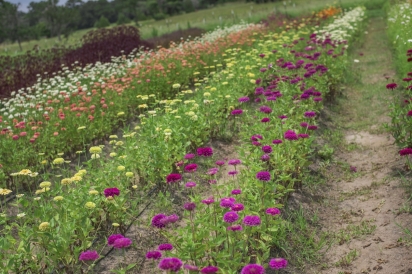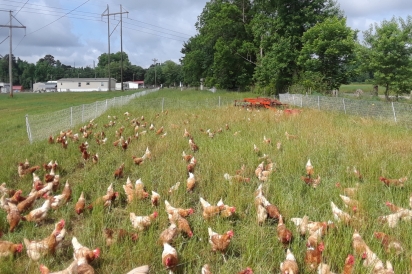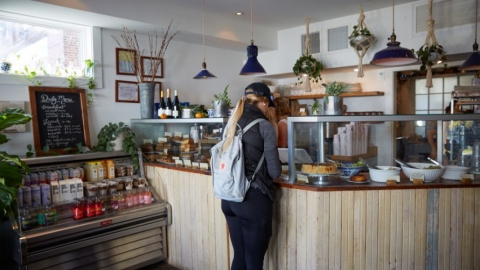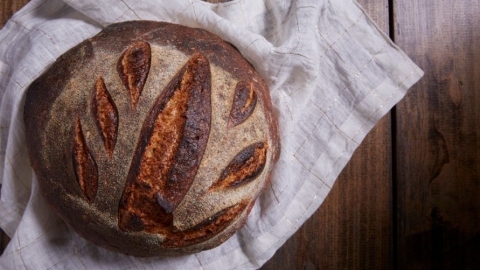FarmHER: How women are shaping the South Carolina food system
Close your eyes, and picture a farmer. There’s a strong chance that you imagined an aged and sun-worn grandfather figure.
But the face of farming is evolving. About one million women are currently running farm-based businesses, representing 30% of the total farmers in the country. And as farmers age out, the next generation is increasingly coming from outside of traditional circles. Individuals with non-agricultural-related degrees, people of color, indigenous people, veterans and members of the LGBTQ community are taking to the fields, and they’re bringing big ideas with them.
According to the National Young Farmers Coalition, these new farmers are more likely to be committed to environmental stewardship and to be advocates for equity and inclusion in the industry. This new wave of farmers is seeking more than a career—they’re after an opportunity to make a difference in their community and in their lives.
“You’re probably not going to get rich farming, but your quality of life is going to be high,” says Danielle Spies, co-owner of Sea Island Savory Herbs on Johns Island, a thriving plant nursery she runs with her business partner, Ella Cowen.
“I really appreciate when people come in and see that we are an all-women’s farm,” Spies says. “I like raising my daughter seeing strong women, and showing her we have the confidence to do it all on our own.”
The two friends purchased Sea Island Savory Herbs in 2013 with the major incentive of having the flexibility of raising their children while growing a strong business. Despite years of working at the farm prior to buying it, the first years were challenging.
“It felt like we had to prove ourselves. There’s pressure to know everything; to have more, grow bigger and look perfect,” Cowen says.
Spies’ advice to farmers getting started is to “surround yourself with people you enjoy working with, do what works best for you and your business, go with the flow and follow your heart.”
Six years later the two still love their jobs, enjoy working together, and have built a successful business that is leveling up the herb game in restaurants and markets throughout the area.
Changes in demographics aren’t the only aspect of agriculture evolving. Farmers in growing numbers are seeking opportunities in urban communities, from empty lots and rooftops to hydroponic tunnels and shipping containers. Traditionally a rural industry centered solely on crop yields, farming has expanded into cities, with urban farmers seeking opportunities for economic development, education and empowerment.
Germaine Jenkins of Fresh Future Farm is one such pioneer, cultivating more than healthy food in the Chicora-Cherokee neighborhood of North Charleston. For Jenkins, her farm not only provides access to healthy food but also teaches farming skills applicable to home gardens or agricultural businesses.
“I want to share so much about what I am learning; to get people’s hands in the dirt and show them it’s not as complicated as we are led believe,” Jenkins says. Urban agriculture provides many farmers with lower barriers to entry, easier access for customers, opportunities for education and reduced transportation costs.
“Being in the middle of a residential neighborhood is golden because we are where the customers are,” Jenkins says. She also believes it is important for residents in the neighborhood to “see people who look like them growing their food.”
Jenkins is creating opportunities for black farmers to build connections and share best practices with the community by hosting the inaugural SC Black Farmers Conference on March 26. Bringing industry leaders such as Leah Penniman of Soul Fire Farm and author of Farming While Black, Erika Allen of the Urban Growers Collective as well as an impressive roster of local chefs and artisans, the event aims to provide a balance of best practices, networking, and celebration. Community is at the heart of Jenkins’ farm because from her perspective, you can work smarter and not harder by bringing in experts to expand your operation. “You can’t do everything yourself,” Jenkins says.
With only 2% of the population in agriculture, the industry is in a position to open the doors to all individuals and production methods.
“Before we didn’t have enough markets and now we don’t have enough farmers,” says Helen Fields, co-owner of Joseph Fields Farm on Johns Island. “We need to continue to get more young people involved.” Fields and her husband, Joseph, have been running their farm as a partnership since the early 2000s, with Helen handling the business side of the farm while Joseph focuses on production and sales.
“If it wasn’t for mentorship, we wouldn’t be where we are today,” Jenkins says. “A farmer needs to be affiliated with other farmers and farming organizations because that is your teaching tool. As things change, you need to be prepared.”
Having started one of the first USDA-Certified Organic Farms in South Carolina, the Fieldses have worked hard to keep up with industry trends and they are passionate about mentoring the next generation through farming apprenticeships.
For aspiring farmers, these apprenticeships provide invaluable hands-on experience.
“I was mentored by a very strong-willed woman,” says Jess Martin of her apprenticeship with Casey Price. Price owns Jeremiah Farm & Goat Dairy on Johns Island, where in addition to running a Grade A goat dairy, she also provides mentorship for new farmers interested in livestock.
After gaining invaluable hands-on experience working with animals, Martin became the farm manager at Wishbone Heritage Farms in St. George, where she oversees pasture-raised sheep, hogs, chickens, ducks and cattle. Martin credits Price as well as Celeste Albers of Green Grocer with providing her the support necessary to face the challenges of livestock farming.
“These are women who aren’t afraid to get in there and do the dirty work. I’m lucky to have connections with both of them. Those relationships help me stay confident,” Martin says. As a petite woman of 5 feet 3 inches working with 500-pound hogs, she is often questioned about her ability to handle animals. But she feels that being a woman in the livestock industry is an advantage.
“I think that we are more nurturing and take a more of an intuitive approach to things,” Martin says. “I feel like I can interact with animals without having to rely on physical strength.”
Martin is passionate about pushing her industry towards more humane practices that include quality grazing and feed, which honor the animal and ultimately result in a superior product. As a livestock farmer, Martin wants “to be part of the solution and not part of the problem.”
Agriculture’s capacity to effect positive change is a draw for many new farmers. But if you weren’t raised on a farm, finding the resources and a network to get started is challenging. For Laura Mewbourn, owner of Feast & Flora Farm in Meggett, it came down finding the right people.
Similar to many new farmers, Mewbourn’s collegiate roots are not agricultural; prior to farming, she spent years working in academia.
“I went to college and picked the major I was supposed to pick, and ended up in an office job like I was supposed to. But I would walk past landscapers working and think ‘oh gosh, that looks really nice’ but I never let myself go much deeper than that.”
Upon moving to Charleston, Mewbourn stumbled across the Growing New Farmers Program and decided to explore farming as a potential career. While preparing for the transition from academics to agriculture, she immersed herself in podcasts and read countless books on the life of a modern farmer. Yet it wasn’t until her first few weeks in the program, working with her farm mentor and gaining hands-on experience, that she knew she could physically and mentally be a farmer. Without land to inherit or an experienced farm family to lean on for technical support, Mewbourn looked to other farmers in the local network for help.
“You need to find farmers who understand the position you’re in and who are willing to lend their assistance,” Mewbourn says. In order to build a farm from scratch, she relied on these farmers to provide guidance on everything from plowing the fields to buying equipment. Mewbourn acknowledges that farming is a trade requiring a lifetime of research and learning but at some point, you have to take the leap, even if it is a small one.
“At the end of the day, you just have to do it,” Mewbourn says. Three years later, she’s managing a successful farm and hosting apprentices of her own.
The challenges these women have overcome represent the greater obstacles the industry is experiencing as farmers across the country work hard to feed their communities. It’s important that as consumers, we not only support farmers at the market but that we invest in the programs and policies focused on building an equitable, inclusive and resilient food system. If the industry continues to attract hard-working, innovative farmers like these, the future looks bright...and delicious.


